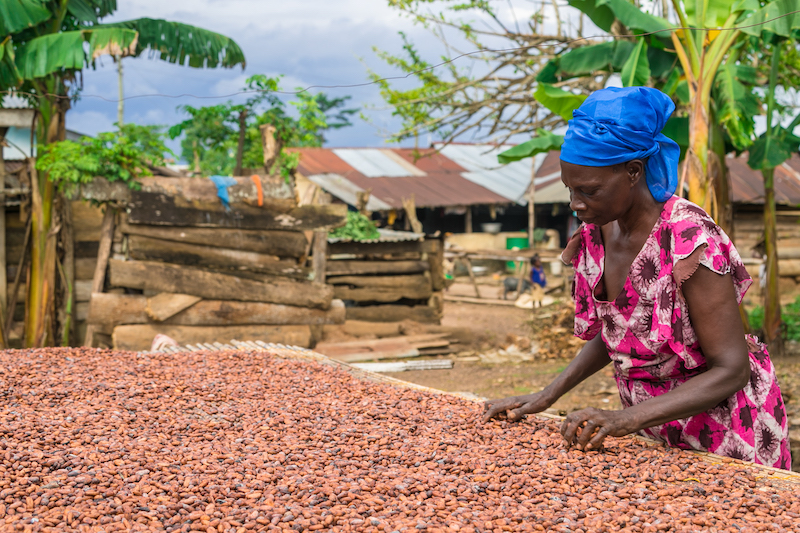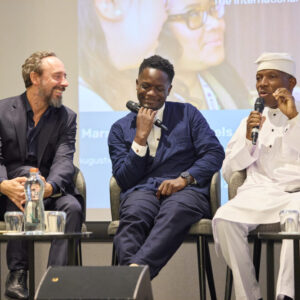Exclusive: Fairtrade Foundation set to play its part with World Confectionery Conference Q&A session

pic: Fairtrade..cocoa farming operations in West Africa are critical to supply chains
One of the key aspects of this year’s conference will be our Q&A on the future of the cocoa sector and its supply chains. Neill Barston speaks to Jason Archie-Acheampong, of Fairtrade Foundation, who is among our panel for 2025
With the global cocoa sector facing significant challenges including the combined impacts of climate change, crop disease, ongoing issues of child labour, below poverty level pay within the wider industry, as well a historic lack of infrastructure investment, the Fairtrade movement is playing its part in addressing these inequalities. See our exclusive video version of the interview with Jason below. Registration for our World Confectionery Conference is open at the following link: confectioneryconference.com
Q: How do you feel about being part of this year’s event?
A: I’m really looking forward to being there at the World Confectionery Conference, which is a seminal event. This in an important time for many related industries, and this give us the chance to talk about some of the key issues affecting the cocoa supply chain. Importantly, it will also give us a chance to connect with companies and action these discussions, so it will be an honour to be part of it, and this will be a key opportunity for us to champion ethical sourcing and put farmers at the forefront of this conversation.
Q: What made you passionate about the cocoa industry?
A: My family is originally from Ghana, but I was born in the UK myself, though at heart I am Ghanaian. So, having grown up around that culture, and having relatives who have worked in farming and on cocoa plantations, including my grandfather who owned a farm. It was just a smallholding of four hectares, but I have seen first-hand how farming is difficult for many people within cocoa.
When my grandfather was farming back in the 1960s, it was seen as something quite lucrative, but if I speak to my uncles there now, it is just a side hobby and is not prioritised.
My passion for the industry comes as I spent some years working across agricultural fruit supply chains from a trading perspective, working to supply fresh produce out of West Africa to European retail. So, being able to be at the nexus of business and development is a real deep passion and interest of mine, so that’s why I am in cocoa.
Q: How does it feel to be part of a mission driven organisation seeking to make a difference?
The key word there is mission driven – we look at the fundamental challenges – they are complex, and require a lot of collaboration and thought. Being able to be part of that along with business, brands, co-operatives, governments at the heart of addressing some of those key challenges today is important, and Fairtrade sits among that in being able to bring together the different parts of the supply chain.

pic: Fairtrade
Q: How critical is it to notably improve farmer pay in the cocoa industry in your view?
With Ghana and Ivory Coast producing around 70% of the world’s cocoa, you would think that farmers would feel that it is really worth the stress, but in many cases it is not. That is partly down to the amount that they are getting paid, which is still insufficient, with many farmers still below the poverty line despite the toil and work they put in. These challenges have heightened because of climate change as well.
However, there are amazing, studious farmers who are trying to address and respond to these conditions. There are some equally amazing programmes being deployed by retailers and the likes of Fairtrade that are working with cooperatives aiming to embed resilience and enhance productivity ( with measures such as encouraging agroforestry, and planting different strains of cocoa plants that are more disease resistant, as well as pruning). But there’s still so much more that needs to be done as an industry to pay them enough so that they feel they can pass these farms on to their sons and daughters.
Q: Can you explain how Fairtrade has gone about providing additional premiums and support to farming communities?
There are three ways in which we as Fairtrade seek to address the inequity that we see within the cocoa supply chain. One is through pricing, another is through our programmes, and thirdly through advocacy. With pricing, we have the Fairtrade minimum price, which sets the safety net for farmers in times of volatility. There is also a premium to farmers that is an investment on top of every kilo of cocoa sold. Fairtrade is one of the most recognised sustainability marks – so when consumers in the UK are out there buying this chocolate, it is helping this additional investment that we make.
What we have found fundamentally, and is still the case for farmers is that it is hard for them to predict how much they are going to get paid and when, and if they are going to have contracts. So looking at pricing and contracts is really important. With programmes, we are working to address some of the fundamental issues that exist, such as our West Africa co-operatives, based on strengthening farms so that they can be sustainable.
As for advocacy, we are working with governments, as well as consumers, universities and schools globally to bring all these issues to the fore and galvanise the Fairtrade movement.
Q: What work is the organisation presently doing to engage with younger generations of potential farmers who will form the backbone of the sector in the coming years?

This is an important question. There are many ways we are looking at this – and it includes working with a younger generation to encourage their involvement in the cocoa sector. Then there’s also the work that needs to be done around creating a more equitable supply chain, that makes cocoa farming more attractive.
So we are seeing that with a lot of investment that going into co-ops, is going into strengthening those groups, which is helping them employ young people to become staff members, and drive a lot of the activity of those cooperatives. That also includes the fact that through the investment that is made in those groups, young people are then able to go to university and become accredited in certain skills that they can then bring back into the sector.






